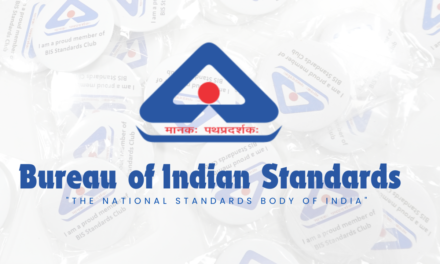What is the extent of services offered by textile agents, such as sourcing, negotiation, and logistics management?
Textile agents provide a broad range of services that are essential for facilitating the entire textile supply chain. These services help buyers and manufacturers navigate the complexities of sourcing, negotiation, production, and logistics management. Below is an overview of the extent of services offered by textile agents:
1. Sourcing of Materials:
- Identifying Suppliers: Textile agents assist in identifying and sourcing raw materials (fibers, yarns, fabrics, dyes, and chemicals) from local and international suppliers. They have extensive networks and knowledge of reputable suppliers, ensuring the materials meet the desired specifications.
- Supplier Evaluation and Selection: Agents evaluate potential suppliers based on factors such as quality, cost, capacity, reliability, and compliance with industry standards. They ensure that suppliers meet specific buyer requirements and certifications (e.g., OEKO-TEX, GOTS, ISO certifications).
- Sourcing Sustainable Materials: Many textile agents specialize in sourcing eco-friendly and sustainable materials (e.g., organic cotton, recycled polyester, hemp) to meet increasing demand for sustainable textiles.
2. Negotiation and Contracting:
- Price Negotiation: One of the primary functions of textile agents is to negotiate pricing with suppliers and manufacturers. They leverage their experience and knowledge of market conditions to secure the best possible prices for their clients while maintaining the quality of the materials or finished goods.
- Terms and Conditions: Agents negotiate the terms of trade (e.g., payment terms, delivery schedules, warranty conditions) and draft contracts that define the agreement between the buyer and the supplier/manufacturer.
- Risk Mitigation: They help manage risks by clearly defining responsibilities in contracts, addressing potential delays, quality issues, and payment disputes, and ensuring compliance with relevant regulations and standards.
3. Product Development and Design Support:
- Collaborating on Design: Textile agents often work with clients to refine product designs, ensuring that the fabric and materials used are appropriate for the intended application. They may also help identify new trends in the market and advise on fabric choices, colors, and patterns.
- Sample Creation and Approval: Agents coordinate the creation of product samples and ensure that they meet the buyer’s specifications before mass production begins. They also manage the approval process for prototypes and samples.
4. Quality Control and Assurance:
- Pre-production Inspections: Textile agents often conduct inspections before production begins to ensure that all materials meet the required standards. This can include checking fabric quality, dyeing processes, and ensuring the correct machinery is in place.
- In-line and Final Inspections: During the production process, agents conduct in-line inspections to monitor the quality and consistency of the production. They also carry out final inspections of the finished goods to check for defects, color consistency, and adherence to the buyer’s specifications.
- Product Testing and Certification: Agents may assist in arranging for third-party testing of fabrics and finished products for various qualities like color fastness, tensile strength, flammability, and chemical safety.
5. Logistics and Shipping Management:
- Transportation and Shipping: Textile agents manage the logistics of transporting materials or finished products from the manufacturer to the buyer. This involves selecting the best shipping method (air, sea, road), managing documentation (e.g., bills of lading, customs paperwork), and ensuring timely delivery.
- Warehousing and Inventory Management: Agents may also handle warehousing services, including the storage of raw materials, finished products, and inventory management. They ensure that stock levels are maintained and that orders are fulfilled in a timely manner.
- Customs Clearance: Agents assist in navigating customs regulations and ensuring that goods comply with import/export laws. They facilitate customs clearance and manage any duties or tariffs required for international trade.
- Freight Forwarding: In some cases, agents act as freight forwarders, coordinating the movement of goods from one country to another, optimizing routes and ensuring compliance with global shipping standards.
6. Market Research and Trend Analysis:
- Identifying Trends: Textile agents keep buyers updated on market trends related to fabrics, garments, and materials. They track fashion trends, consumer preferences, and innovations in textiles, helping clients stay competitive in the market.
- Competitor Analysis: They provide competitive insights, such as pricing strategies, manufacturing capabilities, and sourcing alternatives, helping clients make informed decisions.
- Supply Chain Intelligence: Agents offer insights into market conditions, including the availability of raw materials, pricing volatility, and trade regulations, helping companies manage risks in their supply chains.
7. Compliance and Legal Assistance:
- Regulatory Compliance: Textile agents ensure that all products meet local and international regulations, such as health and safety standards, labor laws, and environmental standards. They stay informed about changing regulations and assist manufacturers in certifying products for international markets.
- Ethical Sourcing: Agents also ensure that manufacturing processes comply with ethical labor practices and that environmentally friendly practices are followed. This is especially important for buyers looking to meet sustainability goals.
8. After-Sales Support:
- Customer Feedback Management: After the products are delivered, textile agents often help manage customer feedback, ensuring any issues or complaints are addressed. They may coordinate returns, exchanges, or rework for defective goods.
- Post-Production Services: Agents might also assist with post-production services such as repairs or alterations on the finished goods, particularly in the case of high-value or complex textile products.
9. Supply Chain Optimization:
- Managing Lead Times: Textile agents work to optimize production schedules, ensuring that lead times are met without compromising quality. They keep track of production timelines and delivery schedules, ensuring that any potential delays are addressed proactively.
- Cost Reduction: Agents help identify opportunities to reduce costs in the supply chain, whether through more efficient sourcing, logistics management, or negotiating better terms with suppliers.
10. Technology Integration:
- Digital Platforms: Many textile agents now utilize digital platforms and enterprise resource planning (ERP) systems to track orders, monitor inventory, and streamline communication between buyers, manufacturers, and suppliers.
- 3D Visualization and Prototyping: Some textile agents offer 3D design services and virtual prototyping to help clients visualize their products before committing to full-scale production. This can reduce errors and speed up the design process.
Textile agents offer a wide array of essential services that go beyond traditional sourcing and purchasing. From supplier identification, price negotiation, and quality control to logistics management, market research, and regulatory compliance, their services cover every aspect of the textile supply chain. By leveraging their industry knowledge, global networks, and technical expertise, textile agents help streamline operations, reduce costs, ensure product quality, and meet compliance standards for their clients, making them indispensable in today’s complex and fast-paced textile industry.







